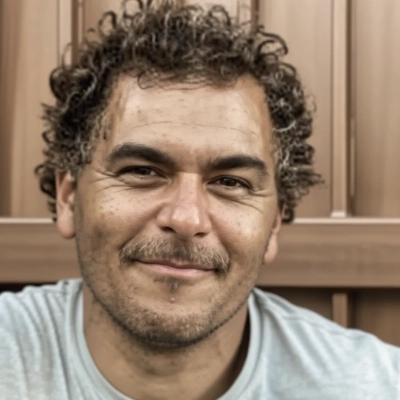3 Methods for Rebuilding Trust After Infidelity in Couples Therapy
Infidelity can shatter the foundation of even the strongest relationships, leaving couples struggling to rebuild trust. This article explores expert-backed methods for healing and restoring bonds after betrayal through couples therapy. From structured disclosure to consistent behavior and guided communication, these strategies offer hope for couples seeking to overcome the challenges of infidelity.
- Structured Disclosure Rebuilds Trust After Infidelity
- Consistent Behavior Over Time Restores Relationships
- Guided Transparency and Communication Heal Betrayal
Structured Disclosure Rebuilds Trust After Infidelity
Here's how I approach it when couples come to me after an affair:
And I'll be honest, it's messy and heartbreaking every single time.
That first day is brutal. Let's talk about a specific couple and give them names: Sam and Priya.
Sam walks in shaking like a leaf, and Priya looks like she's turned to stone. Before we dive into anything, I make sure they understand: you need to eat, you need to sleep. I know it feels impossible right now, but your brain can't process trauma when you're running on empty. No staying up until 3 AM demanding answers, that just makes everything worse.
The hardest thing I tell them is this: "We're going to stop guessing and start knowing." It's terrifying, but the not knowing is what's killing you both. So we schedule what I call a full disclosure session for the following week. Until then, nothing gets deleted, no secret phone calls to end things "properly." I know it's agony to wait, but rushing this part usually backfires.
When disclosure day comes, we sit down with a timeline that Priya has prepared. She reads through the facts: when, where, how they communicated. I don't ask for graphic details because that's not what Sam needs to heal. When Sam asks something Priya isn't sure about, I step in: "Let's pause here. Go find out, and we'll follow up tomorrow." This stops the awful cycle of partial truths that just prolongs the pain.
Right after that session, we create what I call a transparency agreement. It's not about control or punishment; it's about rebuilding safety. They both agree to things like shared calendars, checking in when plans change, and yes, occasionally looking at each other's messages when anxiety spikes. The key is making it predictable, not paranoid.
Every day, they spend ten minutes together going through a simple routine: Priya acknowledges the impact of what she did, explains what she's doing to fix things, and reassures Sam about their future. It sounds clinical, but having a structure helps when emotions are all over the place.
The real work happens in those middle weeks.
Priya learns to give facts first, then comfort. It's not natural at first, but it works.
The hardest part for most couples is knowing when to ease up. Three solid weeks where trust is consistently good, no major slip-ups, and anxiety is genuinely decreasing; then we can talk about dropping the most annoying rule (usually the location sharing).

Consistent Behavior Over Time Restores Relationships
Trust after infidelity never immediately returns because of an apology, although it is tempting for both parties to expect that. Trust is rebuilt through consistent behavior over time. I usually require each partner to do some individual work first. The betrayer has to figure out why it happened, and the betrayed partner needs support to work through the pain. Once that work is done, couples therapy focuses on accountability and follow-through. Trust can then emerge in the small daily choices and interactions.

Guided Transparency and Communication Heal Betrayal
Rebuilding trust after infidelity requires time, consistency, and intentional effort from both partners. In my practice as a psychiatric nurse practitioner, I've found that guided transparency combined with structured communication offers couples the most effective path forward. Research shows nearly 60% of couples who pursue therapy after infidelity stay together, confirming recovery is possible with the right approach.
The method works in two parts. First, transparency creates a foundation where both partners commit to openness about their feelings, daily activities, and emotional triggers. Second, structured communication provides a framework to process painful emotions without spiraling into conflict.
I have couples set aside weekly time for facilitated conversations where one partner speaks while the other listens actively, then reflects back what they've heard before responding. This simple practice significantly reduces defensiveness while rebuilding empathy and understanding—qualities typically damaged by betrayal.
As couples maintain consistent honesty and accountability, I see them gradually shift focus from past hurts toward creating a shared vision for their future. While healing is never quick, these structured practices provide a clear pathway toward building a stronger, more resilient relationship.


